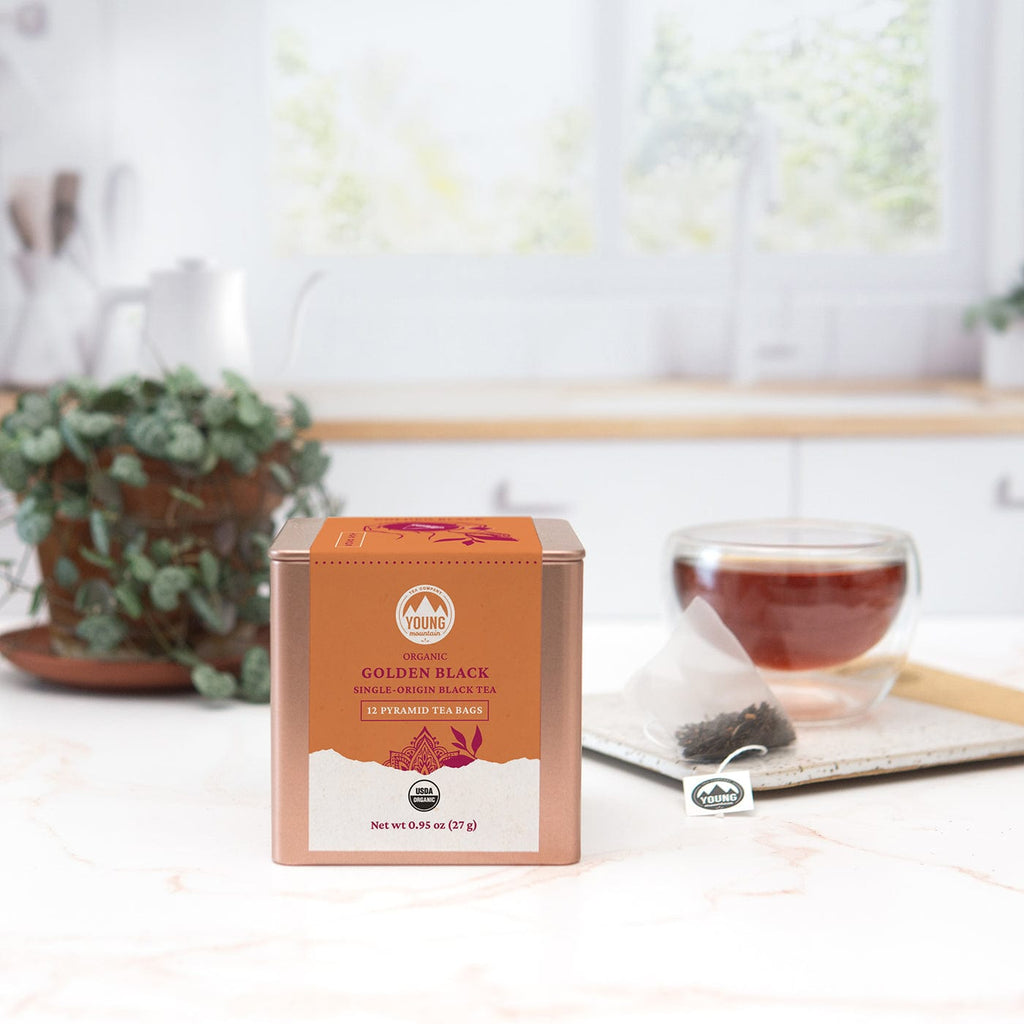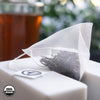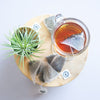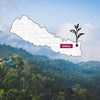





$15.99
This rich, single-origin organic black tea has layered aromas of chocolate, apricot, and dark honey. It’s made by Tinjure, Nepal's first tea cooperative to own its own processing facility. Our most popular black, this tea is also available in loose-leaf as Nepali Golden Black.
Tasting Notes: Milk chocolate & dark honey
Origin: Ilam District, Eastern Nepali Himalayas
Tea Maker: Tinjure Cooperative
Infusion Suggestions:
Steep 1 8 oz | 212° F | 3.5 min
Steep 2 8 oz | 212° F | 5 min
Certifications: USDA Organic
Contains Caffeine
Tasting Notes: This single-origin black tea’s smooth body carries notes of rich milk chocolate and thick dark honey. Its bouquet is surprisingly bright for a tea of such depth, with unexpected fruity notes of apricots rising from the cup. Drinkers of English Breakfast, Yunnan Gold, or Earl Grey are likely to enjoy this tea.
Production: Nepali tea farmers make this tea by meticulously harvesting only the newest two leaves and bud of each tea branch. The secret to this tea’s quality lies in preserving the unfurled bud, the very youngest part of the tea bush, in the post-harvest processing. The undamaged buds turn golden when they are oxidized in processing, giving the tea both its name and its layers of complexities. The combination of terroir, selective harvesting, and careful processing all contribute to this exceptional black.
Region: The most established of Nepal’s tea growing regions sit adjacent to India’s famous Darjeeling region, which both are in the shadows of Mt. Everest. Given the two neighboring region’s near identical growing conditions, most Nepali tea was historically sold as knock-off Darjeeling. In the last several decades, the small-scale farmers have led the creation of an independent Nepali tea identity. Borrowing from tradition while introducing innovation, these high-elevation Nepali communities are reinventing south Asian tea.
Tea Makers: We accidentally met the Tinjure Cooperative in 2015. However, they had been working hard growing tea for two decades by that point. In the 1990s, three Nepali villages on connected hillsides joined forces and began growing organic tea as a cooperative. They named themselves Tinjure in tribute to their shared mountainous landscape -- Tin (“teen”) means three, and jure (“joo-ray”) means hills. Initially, the Tinjure tea cooperative didn’t own processing equipment, so its farmer members sold their harvest to nearby tea gardens. Then in 2013, Tinjure raised funds to establish its own processing facility. Today, the Tinjure Cooperative is 240 members strong.
Impact: Tinjure runs Nepal’s first cooperatively-owned and operated tea processing facility. By processing their own teas, farmers at Tinjure earn 20 times more than they did when selling their harvest to privately-run factories. Today, Tinjure’s board of directors includes both women and men, introducing fresh and necessary female perspective into leadership decisions.
Packaging: Our commitment to sustainability means we offer our teas in several types of packaging: